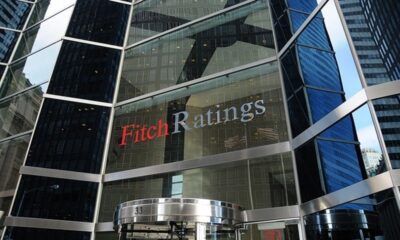Fitch Ratings Affirms Transportadora de Gas Internacional Ratings at ‘BBB’; Outlook Negative
Fitch Ratings has affirmed the Long-Term Foreign and Local Currency Issuer Default Ratings (IDRs) of Transportadora de Gas Internacional S.A. E.S.P. (TGI) at ‘BBB’, according to a statement released on August 22, 2025. The company’s long-term senior unsecured debt rating was also affirmed at ‘BBB’. The rating outlook remains negative.
The affirmation of TGI’s ratings reflects a connection to its parent company, Grupo Energia Bogotá S.A. E.S.P. (GEB) (OTCMKTS: GEB; BVC: GEB), based on what Fitch describes as medium-to-high operational and strategic incentives for GEB to support TGI. The negative outlook is consistent with Fitch’s outlook on the sovereign rating for Colombia (BB+/negative), as TGI’s cash flow is generated almost entirely within the country.
The ratings also consider the company’s position in the Colombian natural gas transportation sector, regulatory risk exposure, and capital structure. Fitch noted that the ratings also account for re-contracting risk due to a lower supply of long-term gas supply contracts.
Key Rating Drivers
Parent-Subsidiary Linkage: Fitch’s analysis of the relationship between GEB and TGI indicates a high strategic linkage, a medium operational linkage, and a low legal relationship. This is assessed using a “top-down minus one” approach, where a subsidiary’s standalone credit profile (SCP) is considered one notch below that of a stronger parent. In this case, TGI’s SCP is deemed susceptible to Colombia’s operating environment due to its domestic cash flow generation. The ratings are equalized because TGI’s SCP is one notch lower than GEB’s.
GEB’s incentives to support TGI include its nearly 100% ownership and TGI’s substantial financial contribution, which accounted for approximately 45% of GEB’s operating EBITDA at year-end 2024. Fitch expects GEB to continue its strategic focus on investing in Colombia’s midstream businesses, such as TGI.
Change in Contract Dynamics: The availability of long-term gas supply contracts has diminished, affecting commercial contracting dynamics. Regulatory changes have introduced more flexibility in gas commercialization, enabling short-term transportation contracts that align with the terms of supply agreements. This has led to lower contracted capacity for TGI, but Fitch anticipates the company will be able to renew contracts with its customers. These customers are considered part of the structural demand derived from the cities of Bogotá and Medellín, as well as the Barrancabermeja Refinery operated by Ecopetrol S.A. (NYSE: EC; BVC: ECO).
As of June 2025, TGI’s contracted capacity had an average life of 2.6 years. Fitch projects that transported volume will remain at approximately 460 million cubic feet per day (Mcfpd) between 2026 and 2027, consistent with current volumes. The average life of contracts is expected to continue decreasing as legacy agreements are renewed with shorter maturities.
Business Profile: TGI is a natural gas transporter in Colombia, with a 55% market share of transported volume. Its scale and geographic footprint provide predictability to its cash flow generation. The company’s customer base is moderately concentrated, with four distribution and marketing customers representing about 81% of revenues as of June 2025. Residential and industrial sectors accounted for 93% of revenues, providing a stable consumption pattern.
Financial Discipline and Capital Expenditures: Fitch anticipates TGI will maintain its financial discipline. EBITDA leverage is projected to peak at 2.3x at year-end 2025, influenced by lower regulatory revenues from reduced contracted volumes. Leverage is expected to decline to around 2.0x in 2026 following the implementation of a new tariff scheme. The analysis assumes TGI will fund both maintenance and expansionary capital expenditures without increasing debt levels and will maintain a dividend payout ratio of 90% of the previous year’s net income. The company has also employed hedging strategies to reduce exposure to the US dollar.
TGI is considering several projects to ensure a reliable gas supply to the interior of the country, including pipeline bidirectionality, infrastructure expansion, and a new pipeline connection in La Guajira to a Floating Storage and Regasification Unit (FSRU). While the La Guajira project may pressure free cash flow in 2026 and 2027, it is expected to strengthen the gas supply network.
Peer Analysis: TGI’s credit profile is categorized as investment-grade, with predictable EBITDA generation consistent with natural gas transportation companies such as Transportadora de Gas del Peru, S.A. (TGP) (BVL: TGP). TGI is also positioned against other regional peers in the natural gas distribution and liquefied natural gas sectors, including Gas Natural de Lima y Callao S.A. (BVL: CNL), Promigas S.A. E.S.P. (BVC: PROMIGAS), and GNL Quintero S.A.
TGI is rated one notch above Promigas due to its more conservative capital structure, with leverage below 3.0x compared to Promigas’s range of 3.5x to 4.0x. TGI’s rating is one notch below TGP, as TGP’s revenue is derived from long-term ship-or-pay contracts with a remaining average life of approximately six years, while TGI’s average contract length is 2.8 years.
The ratings also reflect the strategic and operational incentives for GEB to support TGI. In 2007, GEB provided a $370 million USD shareholder loan to TGI, which was repaid in 2023. Fitch believes that GEB could provide further support if necessary.
Liquidity and Debt Structure
As of June 2025, TGI’s cash on hand was approximately $594 billion COP, an increase from $476 billion COP in December 2024. During the first quarter of 2025, the company reduced the interest rate on its “Club Deal” facility and prepaid $50 billion COP. The Club Deal loan, which refinanced an intercompany loan from GEB in 2023, is the company’s only significant debt maturity until December 2027.
Natural gas well. (Photo credit: Ken Doerr)



























